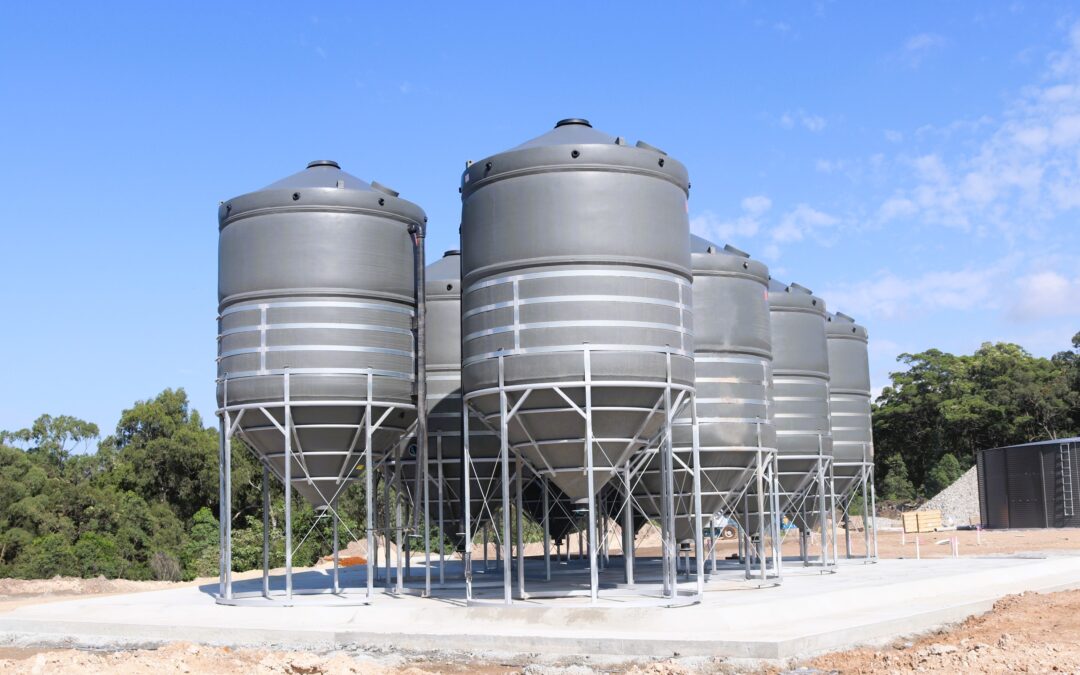In the intricate balance of agricultural productivity, water stands as a central figure, dictating the success or failure of crops. However, the quality of water used for irrigation can significantly impact plant health and yield. In this blog post we’ll explore the critical role that proper water treatment tanks play in enhancing agricultural growth, ensuring that crops receive the clean and nourishing water they need to thrive.
Understanding the Importance of Water Quality
Water quality directly affects soil health, plant nutrition, and overall crop performance. Poor-quality water containing contaminants, sediment, or pathogens can hinder seed germination, stunt plant growth, and increase susceptibility to diseases.
Purifying Irrigation Water with Treatment Tanks
Water treatment tanks act as the first line of defense against waterborne impurities, employing various filtration and disinfection methods to purify irrigation water. From sedimentation to UV sterilization, we’ll explore the processes involved in treating water within tanks, ensuring that it meets the stringent quality standards required for agricultural use.
Preventing Soil Contamination and Crop Damage
Contaminants present in untreated water can accumulate in soil over time, leading to soil degradation and crop damage. Properly treated water helps prevent soil contamination, preserving its structure, fertility, and microbial balance. Treatment tanks mitigate the risk of soil pollution, safeguarding the long-term health and productivity of agricultural land.
Maximising Nutrient Uptake and Crop Health
Clean and balanced irrigation water optimizes nutrient uptake by plants, facilitating the absorption of essential elements necessary for growth and development. Treated water enhances nutrient availability in soil, promotes robust root systems, and supports overall crop health, leading to higher yields and superior quality produce.
Reducing Water-related Stress and Yield Loss
Inconsistent water quality can induce stress in plants, leading to reduced photosynthesis, wilted foliage, and diminished yields. Treatment tanks ensure a consistent supply of high-quality water, mitigating water-related stressors and minimizing yield losses due to drought or waterlogging, proper water management contributes to crop resilience and productivity.
Enhancing Sustainable Agriculture Practice
Sustainable agriculture relies on efficient water use and environmental stewardship to minimise resource depletion and ecological impact. Water treatment tanks play a crucial role in promoting sustainable practices by conserving water, reducing chemical inputs, and protecting natural ecosystems from pollution.
Case Studies and Success Stories
Real-world examples of farms and agricultural operations implementing proper water treatment tanks will illustrate the tangible benefits of enhanced water quality on crop growth and yield. From small-scale organic farms to large commercial operations, investing in water treatment infrastructure pays dividends in agricultural success.
As the global population continues to grow, the demand for food production will place increasing pressure on agricultural systems. Proper water treatment tanks emerge as indispensable allies in this quest for sustainable and resilient agriculture, ensuring that crops receive the clean, nourishing water they need to flourish. By prioritizing water quality and investing in effective treatment solutions, farmers can cultivate bountiful harvests and nourish communities for generations to come.
Follow us on Facebook and LinkedIn for the latest news and updates of products.

